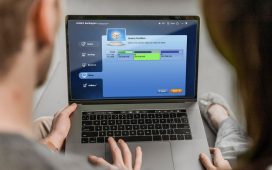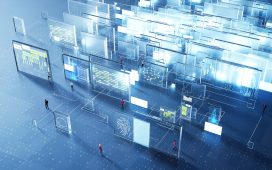
Tesla CEO Elon Musk speaks during a meeting with Chinese Premier Li Keqiang (not pictured) at the … [+]
Two things about Elon Musk’s bold foray into China are decidedly extraordinary.
First, the Tesla billionaire seems about to actually make a deadline. Chinese-made Tesla Model 3’s just started rolling off assembly lines, right on schedule. Second, Musk, a man infamous for Twitter meltdowns, has been uncharacteristically disciplined about his China tweets. Hong Kong protests, what’s that?
Yet the most fascinating thing about Musk’s China mission is how the U.S. and Japanese economies risk getting left behind.
Placing his latest Gigafactory in Shanghai makes eminent sense. For all China’s economic risks—and a 25% import tax—it’s Tesla’s second-biggest market after the U.S. Even more important, though, is how China’s Xi Jinping is incentivizing electric vehicles in ways Washington and Tokyo aren’t.
Though President Xi’s 2019 has been a mess thanks to Donald Trump’s tariffs, China is investing untold billions of public funds in owning the EV market. U.S. President Trump is busily nudging Detroit to make less fuel-efficient cars. Japanese Prime Minister Shinzo Abe is busily hawking “clean coal” power plants around the globe. Xi, in other words, is driving China in the direction of a renewable energy boom, while Trump and Abe are nostalgic for the 1980s.
Enter Musk, who’s reading from the Wayne Gretzky playbook. Just as the hockey great had a knack for knowing where the puck was going next, Musk is putting his innovative eggs where government policies have both the foresight and scale to know that high-performance batteries are the new oil.
Japan has its own fabled history in this regard. When Musk set up his original Gigafactory in the Nevada desert in 2014, one of his first partners was Panasonic, a Japan Inc. icon founded in 1918. Musk sought to tap the Osaka-based company’s decades of research and development on next-generation battery technology, and wisely so.
In recent years, though, Tokyo lost sight of the bigger picture. Since 1999, politicians have been leaning on the Bank of Japan to cut interest rates to zero and beyond to revive growth and end deflation. Absent are government policies to revive Japan’s animal spirits and encourage the private sector to find alternatives to fossil fuels.
Xi’s China, for all its missteps, gets it. It’s striking, for example, that it took Musk less than 170 days to navigate Beijing’s notorious bureaucracy and open shop. That’s warp-speed by Communist China standards and speaks to Beijing’s determination to see the rubber on “Made in China 2025” hit the proverbial road.
For China, the effort is partly about cleaning the skies and waterways in the most populous nation. It remains to be seen how 1.4 billion mainlanders can avoid choking on 6%-plus growth. Here, an EV revolution would help engineer a more sustainable growth. Those batteries could later power homes, businesses, airplanes and ships.
Yet it’s also about China leading the future—a future that Trump and Abe seem oddly happy to forfeit. Sure, Chinese companies can try to build cars to compete with Toyota, Volkswagen and General Motors. The real money, though, is in inventing clean and cheap ways to revolutionize transportation and household energy solutions.
As Trump essentially takes America out of the game and Japan prioritizes nuclear reactors, China has a solid shot at grabbing significant market share. And Musk sure seems to know it. His travels to China have become conspicuously more numerous, drawing headlines. In August, Musk met with Transport Minister Li Xiaopeng in Beijing, along with other government officials. In Shanghai, he appeared at an event with Jack Ma of Alibaba fame.

Alibaba’s Jack Ma and Elon Musk attend the opening ceremony of 2019 World Artificial Intelligence … [+]
Musk’s charm offensive appears to have paid off: an exemption on Beijing’s 10% consumption tax on cars, an extreme rarity for a foreign EV maker. Locals are agog at how quickly Musk acquired land and loans from state-owned banks.
The Tesla guru, meantime, has steered clear of angering China via tweet. The National Basketball League’s China troubles—caused by a tweet supporting democracy in Hong Kong—demonstrate the costs of a single 280-word thought fragment.
Can Musk avoid irking China? He has a knack for ginning up trouble, including with the U.S. Securities and Exchange Commission (for erratic comments about taking Tesla private). Ditto for a bizarre 2018 tirade against a British diver in Thailand (who Musk accused of pedophilia).
Only time will tell. Here, though, is an example of the fastest-growing major economy partnering with one of the boldest visionaries of our time. And of the globe’s No. 1 and No. 3 economies standing on the side of the road.
The EV boom should be resource-poor Japan’s for the taking. Sadly, Abe’s Liberal Democratic Party is as much a slave to the “nuclear village” as it was in 1985. This nexus of pro-reactor politicians, academics and investors stymied the attempts of SoftBank’s Masayoshi Son to build giant solar panel farms. Bureaucratic barriers galore kept Son from storing energy in national power grids.
Trump, meantime, seems more inspired by “The Flintstones” than Silicon Valley propelling energy innovation into the future. The stamps on Musk’s passports are all the economic indicator futurologists need to discern who will profit from the coming battery revolution—China.








